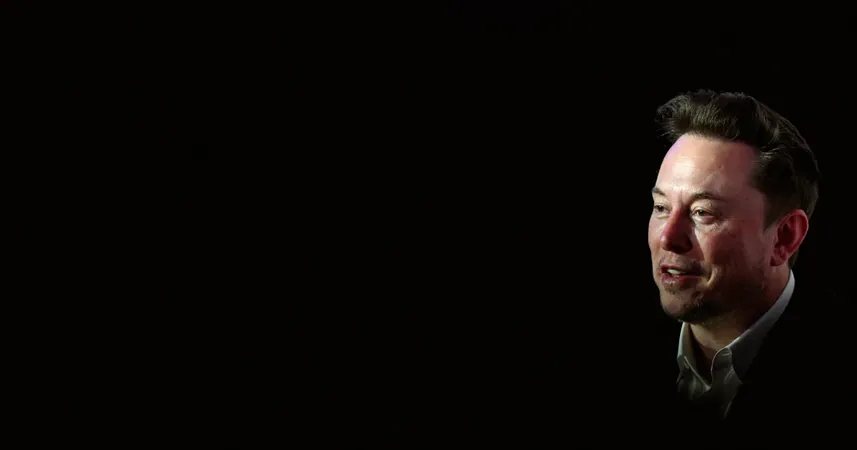
Elon Musk's Regulatory Headaches Disappear as Trump Returns to Power
2025-05-11
Author: Ming
In a surprising twist, tech mogul Elon Musk seems to be shedding his regulatory woes as Trump begins his second term. Federal scrutiny that once loomed over Musk's businesses is now fading, setting the stage for a more favorable landscape.
Under Trump's latest administration, key figures who were investigating Musk’s empire have been removed. Notably, the Department of Agriculture sees new leadership after Trump's dismissal of the official probing Neuralink, Musk's brain implant venture. Other agencies, like the Consumer Financial Protection Bureau, are also facing cutbacks, significantly undermining their enforcement capabilities against giants like Tesla and X.
In recent months, significant legal matters against Musk’s companies have either been dropped or entered discussions for settlement. The Justice Department recently dismissed a case against SpaceX, and the Labor Department has scrapped a planned civil rights examination of Tesla. Questions linger about over 40 unresolved investigations into Tesla’s autonomous driving features and other compliance issues.
Experts suggest that federal agencies are slowing the regulatory processes involving Musk, potentially favoring his interests. Jon Michaels, a law professor at UCLA, states that Musk’s involvement as a White House advisor has given him a unique position of influence over regulatory processes.
While past Republican administrations have relaxed regulations, Michaels points out that this time feels different due to Musk's direct involvement in governance. The ongoing collaboration between Trump and Musk could mean significant advantages for Musk's businesses, possibly allowing them to escape fines amounting to over $2 billion.
Regulators seem keen to ease restrictions for Musk's ventures, as evidenced by the Transportation Department’s recent decision to lower reporting thresholds for self-driving vehicles and the Federal Aviation Administration’s dramatic increase in launch allowances for SpaceX. This new leniency is likely a direct reward for Musk's support of Trump during the campaign, where he invested a staggering $290 million.
Musk’s good fortune might extend beyond regulatory relief; he stands to gain lucrative new contracts, particularly for SpaceX and its satellite service, Starlink. Reports suggest SpaceX is a frontrunner in constructing Trump’s ambitious missile defense initiative.
Notably, Trump's executive orders have already begun to dismantle regulatory frameworks that had targeted Musk's businesses. For instance, the recent halting of the Office of Federal Contract Compliance Programs would have subjected Tesla to necessary civil rights audits.
Many are questioning the ethical implications of Musk's dual role in government and business. Critics argue that the blending of his private interests with government responsibilities raises concerns of favoritism and lack of accountability.
As the regulatory landscape transforms, Musk's narrative evolves from facing scrutiny to enjoying newfound freedom. Whether this trend spells special treatment or a broader temporary reprieve remains to be seen, but one thing is clear: Musk is poised to navigate a less constrained future, much to the delight of his supporters.



 Brasil (PT)
Brasil (PT)
 Canada (EN)
Canada (EN)
 Chile (ES)
Chile (ES)
 Česko (CS)
Česko (CS)
 대한민국 (KO)
대한민국 (KO)
 España (ES)
España (ES)
 France (FR)
France (FR)
 Hong Kong (EN)
Hong Kong (EN)
 Italia (IT)
Italia (IT)
 日本 (JA)
日本 (JA)
 Magyarország (HU)
Magyarország (HU)
 Norge (NO)
Norge (NO)
 Polska (PL)
Polska (PL)
 Schweiz (DE)
Schweiz (DE)
 Singapore (EN)
Singapore (EN)
 Sverige (SV)
Sverige (SV)
 Suomi (FI)
Suomi (FI)
 Türkiye (TR)
Türkiye (TR)
 الإمارات العربية المتحدة (AR)
الإمارات العربية المتحدة (AR)